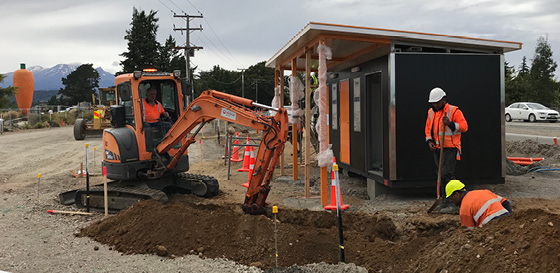Mon 14 May 18.
Ruapehu has been selected to be part of a report being developed for the Department of Internal Affairs (DIA) in advance of a government inquiry that will look into the costs and revenue of councils.
Mayor Don Cameron said that Ruapehu welcomed the opportunity to partner with government to help tackle this issue that is of significant importance to NZ.
It has been apparent for some time that the way local government has funded itself mostly through land taxes will not be sustainable into the future, said Mayor Cameron.
The government inquiry that is taking place over the next 12 months is looking to understand the cost pressures facing local government over the medium term along with the various challenges facing the funding and finance of the sector.
Central government recognises that we (local government) need alternative funding sources to pay for infrastructure in particular for 3 waters (drinking, waste, storm), housing, transport, regional development and climate change issues.
The big matters in Council's recent Long Term Plan (LTP) 2018-28 consultation were notably around how we were going to fund challenges in these areas.
The inquiry into local government costs and revenue is a recognition that neither central nor local government can afford all the projected costs and we will need to be a lot more innovative and flexible in how we meet our funding requirements.
Stuart Cross from specialist consultants Morrison Low who have been engaged to develop the report for the DIA said that the report was aiming to understand the sectors financial sustainability in the face of these mounting funding challenges.
We want to get a good handle on the outlook and plans that councils have in place for dealing with major issues confronting the sector, said Mr Cross.
We are concerned about the infrastructure costs facing the sector and the various population, environmental and economic challenges that will play out over the coming decade.
Previous reports have looked at the challenges facing specific territorial authorities whereas this report is wanting a wide-ranging vision of the challenges facing the sector as a whole.
It will undertake financial modelling and desktop analysis of 15 different territorial authorities from large urban centres through to small rural councils such as Ruapehu.
Mr Cross said that Ruapehu was selected for a combination of factors such as its small rating base, population projections, deprivation index and growing tourism pressures.
Ruapehu is one of five councils out of the 15 in the study that we are visiting to gain direct insight from Council managers.
The research will help inform DIA's thinking and policy advice about the robustness of the current funding and finance system and the appropriateness of any potential alternatives, he said.
*End*


